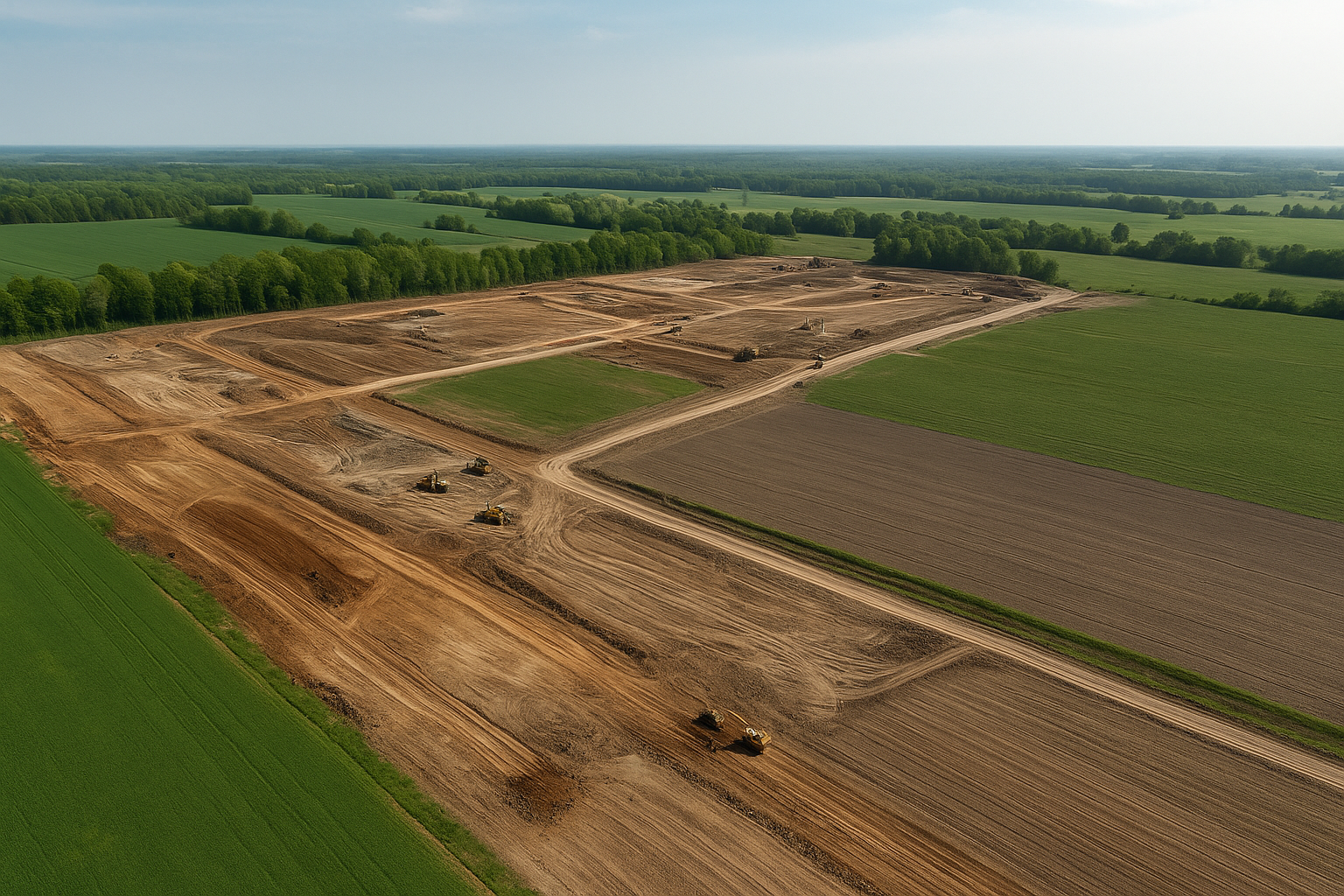When families contemplate relocating to Sandringham-Wellington, a prominent neighborhood in Brampton, Ontario, the quality of local schools often tops their list of considerations. Access to esteemed educational institutions not only ensures a solid foundation for children but also enhances property values and fosters a robust community spirit. In this detailed guide, we’ll explore the top five schools in Sandringham-Wellington, delving into their unique features, academic achievements, and the benefits they offer to both students and prospective homeowners.
1. Harold M. Brathwaite Secondary School
- Location: 415 Great Lakes Drive, Brampton, ON
- Grades: 9–12
- Fraser Institute Score: 8.1/10
Overview: Harold M. Brathwaite Secondary School stands as a pillar of academic excellence within the Sandringham-Wellington community. The school offers a diverse curriculum that emphasizes both STEM (Science, Technology, Engineering, and Mathematics) and the arts, preparing students for various post-secondary pathways. With a focus on critical thinking and innovation, the institution has garnered recognition as one of Brampton’s top high schools.
Academic Programs and Extracurricular Activities: Students at Harold M. Brathwaite have access to Advanced Placement (AP) courses, enabling them to earn university credits while still in high school. The school also boasts a robust arts program, including music, drama, and visual arts, allowing students to explore and develop their creative talents. Athletically inclined students can participate in various sports teams, fostering teamwork and physical fitness.
Community Impact: The school’s commitment to academic rigor and holistic development attracts families to the area, positively influencing local property values. Its emphasis on community involvement and student engagement fosters a strong sense of belonging among residents, contributing to the neighborhood’s vibrant atmosphere.
Real Estate Insight: Properties near Harold M. Brathwaite Secondary School are highly sought after. The surrounding area features a mix of detached and semi-detached homes, as well as modern townhouses, catering to various family sizes and preferences. Proximity to this top-rated school enhances property desirability and value, making it a prudent investment for homebuyers.
2. Lougheed Middle School
- Location: 475 Father Tobin Road, Brampton, ON
- Grades: 6–8
Overview: Lougheed Middle School is renowned for its supportive learning environment and dedication to student success. The school offers a comprehensive curriculum that balances academics with extracurricular activities, promoting well-rounded development. Its focus on fostering leadership and community involvement makes it a standout institution in the neighborhood.
Check out these innovative, non-frictional book report wheels! A fun and creative way to bring your book reports to life. Way to go Grade 6s! @PeelSchools @PNeerja @MrsRituSingh Mariana V. pic.twitter.com/g4OKmw0LTD
— Lougheed M.S. (@LougheedMiddle) November 21, 2024
Academic Programs and Extracurricular Activities: Lougheed Middle School provides a range of programs tailored to meet the diverse needs of middle school students. Beyond core subjects, the school offers specialized programs in music, arts, and technology. Extracurricular activities include clubs such as robotics, debate, and environmental stewardship, encouraging students to explore their interests and develop new skills.
Community Impact: Proximity to a reputable middle school like Lougheed is a significant draw for families with adolescent children. The school’s programs and community initiatives contribute to the neighborhood’s family-friendly atmosphere, fostering a sense of unity and shared purpose among residents.
Real Estate Insight: The vicinity of Lougheed Middle School features family-friendly neighborhoods with parks and recreational facilities. Properties here range from spacious single-family homes to contemporary townhouses, appealing to families seeking quality education and community engagement. Investing in this area offers both lifestyle benefits and potential for property appreciation.
3. Fernforest Public School
- Location: 275 Fernforest Drive, Brampton, ON
- Grades: JK–5
Overview: Fernforest Public School is celebrated for its nurturing environment and commitment to early childhood education. The school’s dedicated staff focuses on building strong foundational skills in literacy and numeracy, setting students on a path to lifelong learning. Its emphasis on inclusivity and community involvement further enhances its reputation.
Academic Programs and Extracurricular Activities: Fernforest offers a balanced curriculum that integrates core academic subjects with arts and physical education. The school places a strong emphasis on character education, teaching values such as respect, responsibility, and empathy. Extracurricular activities include clubs like chess, choir, and eco-club, providing students with opportunities to develop diverse interests.
Community Impact: The presence of a well-regarded elementary school like Fernforest enhances the appeal of the neighborhood to young families. The school’s active involvement in community events strengthens neighborhood ties and promotes a collaborative spirit, making it an attractive place for families seeking a supportive environment.
Real Estate Insight: Living near Fernforest Public School offers families the convenience of walking their young children to school. The area boasts well-maintained properties with ample yard space, ideal for families with young children. The strong sense of community and proximity to educational facilities make this neighborhood particularly appealing to prospective homebuyers.
4. St. Marguerite d’Youville Secondary School
- Location: 10815 Dixie Road, Brampton, ON
- Grades: 9–12
- Fraser Institute Score: 8.2/10
Overview:
St. Marguerite d’Youville Secondary School is a top-performing Catholic high school located in the heart of Sandringham-Wellington. Known for combining faith-based values with academic excellence, the school has earned a strong reputation for preparing students for university, college, and life beyond graduation. It emphasizes both scholastic achievement and moral development, helping students become well-rounded individuals.
Academic Programs and Extracurriculars:
The school offers a range of programs including Advanced Placement (AP) courses, literacy-focused learning, and strong science and business departments. St. Marguerite d’Youville also excels in athletics, student leadership councils, and community service programs, giving students plenty of opportunities to grow inside and outside the classroom.
Community Impact:
Its high academic scores and strong moral foundation make it a top choice for parents looking for both academic structure and personal development for their children. The school’s positive reputation significantly boosts the appeal of surrounding real estate.
Real Estate Insight:
Homes within the boundary of St. Marguerite d’Youville are in high demand. The neighborhood features large detached homes, newer subdivisions, and well-kept townhomes—making it a solid investment area for both end-users and investors targeting family buyers.
5. Louise Arbour Secondary School
- Location: 365 Father Tobin Road, Brampton, ON
- Grades: 9–12
- Fraser Institute Score: 6.9/10
Overview:
Louise Arbour Secondary School is another respected high school in Sandringham-Wellington that has been steadily gaining attention. Known for its inclusive environment and forward-thinking programs, the school caters to a diverse student population and encourages innovation and creativity.
Academic Programs and Extracurriculars:
Students can choose from programs in business, science, technology, and the arts. It also offers Specialist High Skills Majors (SHSM) and co-op education for hands-on learning. The school hosts robotics teams, multicultural clubs, and various sports, giving students a platform to shine in many areas.
Community Impact:
Louise Arbour’s commitment to inclusion, diversity, and experiential learning resonates well in a multicultural community like Brampton. The school supports both academic and social growth, contributing to a positive and inclusive neighborhood culture.
Real Estate Insight:
With many new and developing homes nearby, the area is popular among young families and newcomers. Proximity to this school is seen as a major asset when buying or selling a home, especially among those who value diversity and modern education.
How We Ranked the Schools
The schools were ranked based on several factors that matter most to families and real estate investors:
- Fraser Institute Score: A trusted performance rating based on standardized testing and overall student outcomes.
- Academic Programs: Availability of AP courses, special programs, and extracurricular activities.
- Reputation: Community feedback, alumni success, and engagement with families.
- Inclusivity and Safety: Diversity, anti-bullying policies, and student support services.
- Real Estate Impact: How the school’s performance and reputation influence local property demand and pricing.
This well-rounded approach ensures that the rankings reflect both educational value and real estate impact—a key combo for today’s families and investors.
Final Thoughts: Why Sandringham-Wellington is Ideal for Families
Sandringham-Wellington is more than just a collection of homes—it’s a well-planned, thriving community anchored by some of the best schools in Brampton. Whether you have young kids just starting school or teens preparing for university, the education options here are top-tier.
Benefits of Living in Sandringham-Wellington:
✅ Access to high-ranking public and Catholic schools
✅ Safe, clean, family-focused neighborhoods
✅ Easy access to Trinity Commons Mall, highways, and parks
✅ Growing community with high property value retention
✅ Walkable school zones and family-oriented amenities
Buying a home in this community isn’t just a financial decision—it’s a lifestyle choice. And for parents, choosing the right school zone means securing the best possible future for their children.
Sources and Citations
All information in this article is based on public data and verified sources:
- Fraser Institute – School Rankings
- Peel District School Board (PDSB)
- Dufferin-Peel Catholic District School Board (DPCDSB)
- Realosophy School Profiles
- Canadian University Real Estate
School performance data, Fraser scores, and property insights were cross-referenced with recent listings and community reports to ensure accuracy.
📍 Thinking of moving to Sandringham-Wellington?
Let’s find a home that matches your lifestyle and gives your kids the head start they deserve.
DM or contact us today for listings near these top schools!













